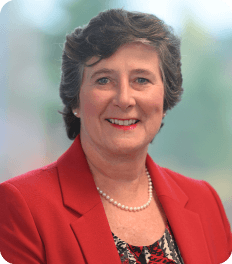Dear Colleagues:
As this issue of Academic Pharmacy Now arrives in your digital inbox, most colleges and schools of pharmacy have celebrated the virtual commencement activities of the Class of 2020. The final weeks of their Pharm.D. education have been like no other class before them. Hopefully, no other group of students, faculty and preceptors will ever have the same experience. The sudden disruption of experiential learning, the anxiety over being in (or being dismissed from) environments where seriously ill COVID-19 patients were arriving in staggering numbers, and questions about how to finish their degree and become licensed in a timely fashion were central to their experience.
Pharmacists and pharmacy faculty have made remarkable contributions during the coronavirus pandemic, as documented in this issue. From the research bench to the bedside, pharmaceutical scientists and practitioners have been difference makers and frontline heroes against a formidable foe.
Community pharmacists across the country have been recognized at the state and national levels as critical access points for care, including expanding access to testing, immunizing to protect against other vaccine-preventable conditions and treating those patients with other acute and chronic conditions; the very conditions that appear to make some individuals more vulnerable to the most serious manifestations of COVID-19.
There are innumerable lessons to be gleaned from these past several months. Despite the shift to remote teaching and learning and work from home for so many, including the entire AACP staff, unprecedented levels of collaboration have been observed. I have worked at the national level for two pharmacy associations for more than 28 years. In March over a period of less than two weeks, staff members from 12 national associations worked countless hours to produce a joint statement addressing how pharmacists can and should be empowered to contribute to the pandemic response. Since the release of the document in late March, these organizations have continued this collaboration and have met with policymakers at the state and federal levels to advocate for the strategies outlined in the document and to seek clarification on issues related to pharmacists’ empowerment and reimbursement for services like testing and immunizing once vaccines become available to prevent future outbreaks of the coronavirus.
Collaboration has been key to so much progress over these months. Scientists from around the world working together. Experiential education leaders and laboratory instructors sharing resources, creative approaches to advancing learning and assessment tools. Colleges and schools working with the Community Enhanced Pharmacy Services network in the ACT Pharmacy Collaborative. By working together, we can accomplish more and do so faster. May this lesson stay with us as we emerge from this pandemic experience and work to do all those things our scientific and clinical leaders recommend to ensure that we remain healthy and stop the spread of COVID-19.
https://www.covidbestpractices.com/act
Sincerely,

![]()
Lucinda L. Maine, Ph.D., R.Ph.
CEO and Publisher

